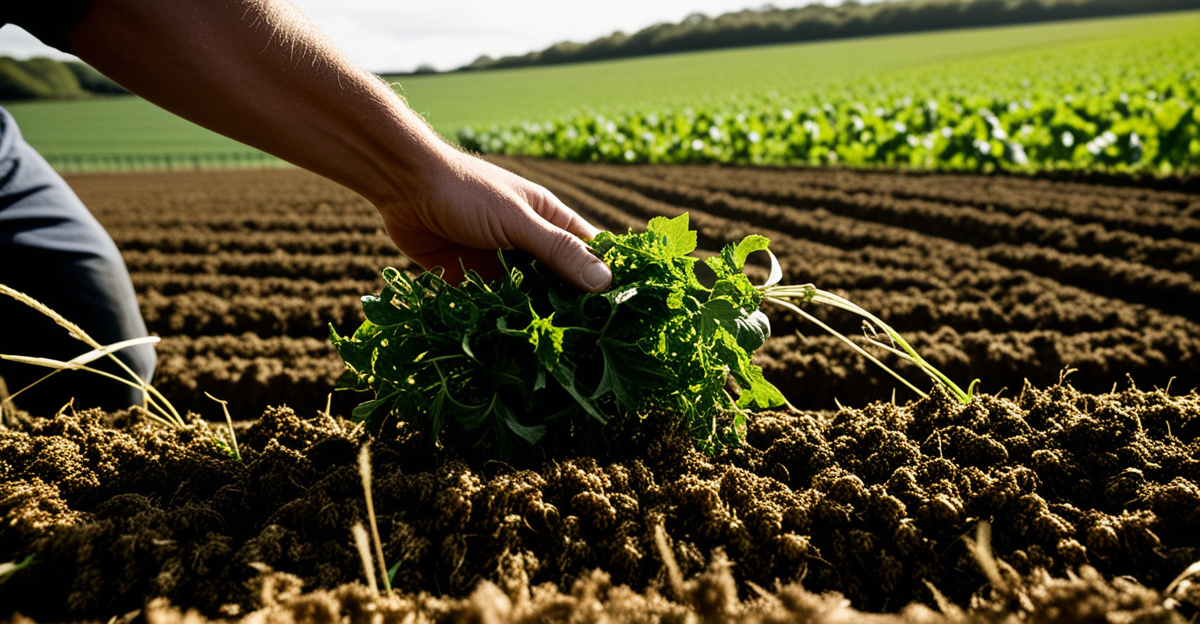Impact of UK Tech Innovations on Sustainable Agriculture
UK agricultural technology is rapidly reshaping the landscape of farming, introducing tools and systems that directly promote sustainable agriculture UK-wide. Among the most transformative innovations are precision farming technologies, which allow farmers to apply water, fertilizers, and pesticides more efficiently. This targeted approach reduces waste and environmental impact while maintaining crop health.
Immediate effects of agri-tech impact include improved soil health due to controlled inputs and a significant decrease in resource overuse. Drones and sensor networks provide real-time data, enabling farmers to monitor crop conditions and adjust practices promptly. Such innovations not only boost productivity but also help in carbon footprint reduction, aligning with broader environmental goals.
Additional reading : How is Artificial Intelligence Transforming UK Healthcare Systems?
Adapting to these technologies is crucial for the long-term sustainability of UK farming. As climate pressures mount, reliance on smart, data-driven solutions becomes indispensable. Farmers leveraging UK agricultural technology benefit from enhanced resilience against weather variability and resource scarcity. Overall, the agri-tech impact fosters a more robust, environmentally responsible agriculture sector capable of sustaining future generations.
Leading UK Technologies Driving Sustainable Farming
UK agricultural technology is evolving rapidly, with precision agriculture UK at the forefront. Precision farming tools utilize GPS mapping and variable rate technology to optimize input application. This increases resource use efficiency and reduces waste, making farms more sustainable and cost-effective. For example, automated soil sensors provide continuous data, enabling adjustments in water and fertilizer application tailored to specific field zones.
Topic to read : How Will Emerging Technologies Transform Daily Life in the UK?
Agri-robots are revolutionizing labor-intensive tasks. Autonomous machines handle planting, weeding, and harvesting, minimizing human error and enhancing operational efficiency. These robots also contribute to sustainable agriculture UK-wide by reducing fuel consumption and minimizing soil compaction through precise maneuvers.
Artificial Intelligence (AI) and the Internet of Things (IoT) agriculture UK systems integrate data from drones, sensors, and machines. AI algorithms analyze this data to forecast crop health, detect pests early, and optimize farm management decisions. IoT devices facilitate real-time monitoring, bridging the gap between data collection and actionable insights.
Together, these technologies empower farmers to make smarter decisions, enhancing productivity while supporting sustainability goals. The agri-tech impact here is evident: farms can achieve higher output with lower resource inputs, aligning economic incentives with environmental stewardship.
Impact of UK Tech Innovations on Sustainable Agriculture
UK agricultural technology is revolutionizing sustainable agriculture UK-wide by enabling smarter, eco-friendly farming practices. One of the most significant agri-tech impacts involves enhanced resource management—technologies like data-driven irrigation systems reduce water usage by delivering the right amount precisely where needed. This minimises waste and safeguards water resources, vital amid climate unpredictability.
Additionally, UK agricultural technology facilitates input optimization; sensors and AI analyze soil nutrients in real time, guiding fertilizer application that avoids excess chemicals. This directly supports sustainable agriculture UK by enhancing soil health and reducing environmental contamination. The agri-tech impact is immediately noticeable through lower operational costs and smaller carbon footprints.
Adopting these innovations is essential for future-proofing UK farms. As pressures from climate variability and resource scarcity grow, farmers embracing these tools achieve greater resilience and long-term sustainability. The shift towards technology-enabled decision-making helps anticipate challenges and adapt efficiently. Therefore, UK agricultural technology not only boosts productivity but also fosters an environmentally responsible farming sector committed to sustainability goals.
Impact of UK Tech Innovations on Sustainable Agriculture
UK agricultural technology drives transformative change in sustainable agriculture UK by integrating advanced tools that enhance efficiency and environmental care. Key innovations include data analytics platforms, which synthesize vast farm data to guide decisions, substantially reducing unnecessary input use. For instance, soil moisture sensors combined with weather forecasts optimize irrigation schedules, directly cutting water waste and bolstering sustainability.
The agri-tech impact is evident through improved ecosystem health; precision nutrient application minimizes chemical runoff, protecting surrounding habitats. Real-time monitoring enables rapid detection of pest outbreaks, curbing pesticide overuse and fostering biodiversity. These practices bolster long-term soil vitality, crucial for sustainable agriculture UK models.
Adapting UK agricultural technology is essential to resilience amid climate change and market pressures. Early adopters report measurable gains: reduced costs, higher yields, and diminished environmental footprints. The shift toward technology-enabled farm management empowers producers to anticipate risks, streamline operations, and maintain productivity sustainably.
By embracing these tech-driven strategies, UK farming advances toward a future where economic performance harmonizes with ecological stewardship, marking a vital step for sustainable agriculture UK-wide.
Impact of UK Tech Innovations on Sustainable Agriculture
UK agricultural technology is advancing sustainable agriculture UK by introducing innovations that enhance both productivity and environmental stewardship. A key aspect of the agri-tech impact lies in the integration of real-time data analytics and sensor networks that enable precise monitoring of soil and crop conditions. This precision allows tailored interventions, reducing input waste and minimizing environmental harm.
Immediate effects on sustainability practices within UK farming include significant water savings through smart irrigation and optimized fertilizer use guided by sensor feedback. These approaches help lower carbon emissions and improve soil health, central goals for sustainable agriculture UK. For example, data-driven decisions ensure that nutrients are applied only when and where needed, preventing runoff and protecting surrounding ecosystems.
Technological adaptation is crucial for the long-term viability of UK farming. As climate uncertainties intensify, farmers adopting UK agricultural technology benefit from increased resilience and operational efficiency. Agri-tech impact extends beyond resource conservation; it supports farmers in predicting and mitigating risks through advanced modeling and AI-powered insights.
Early adoption of these tools fosters a proactive farming culture, positioning sustainable agriculture UK for greater success amid evolving environmental and market challenges.




